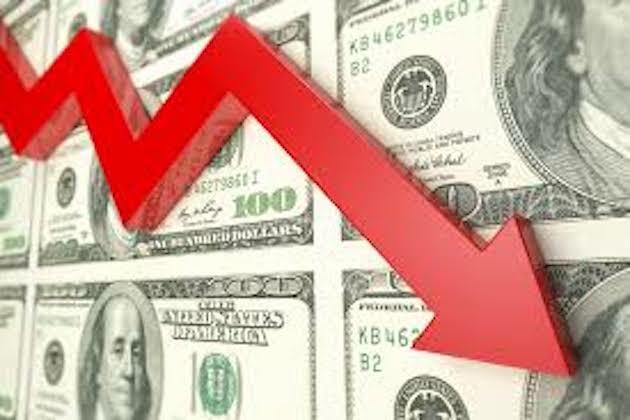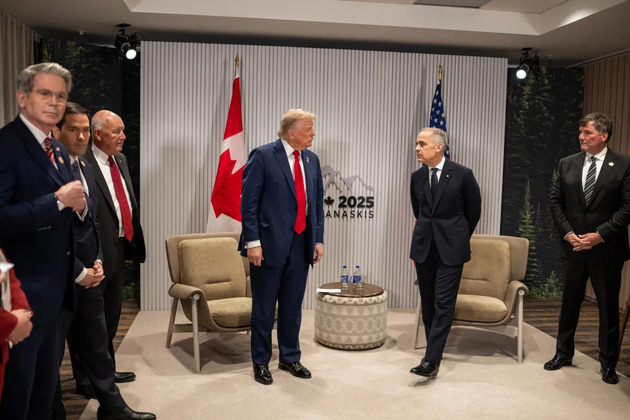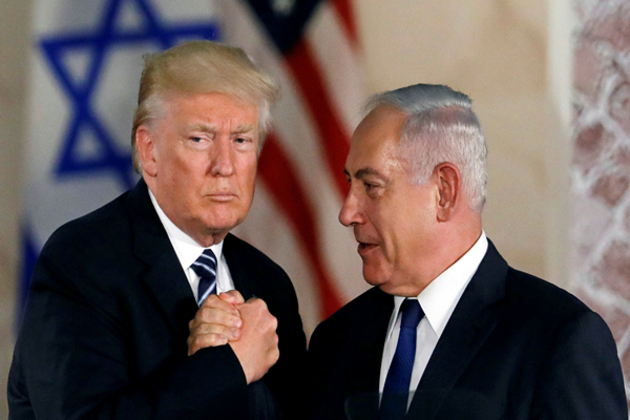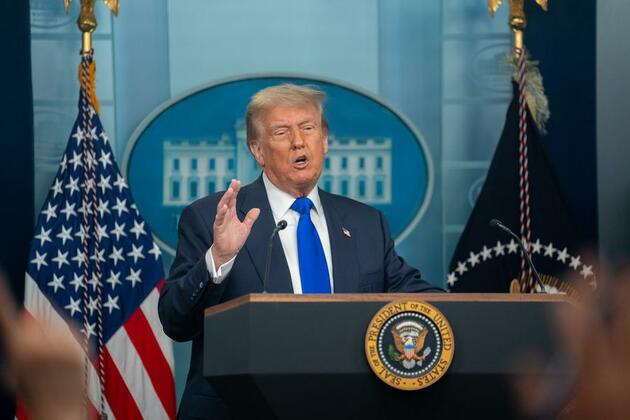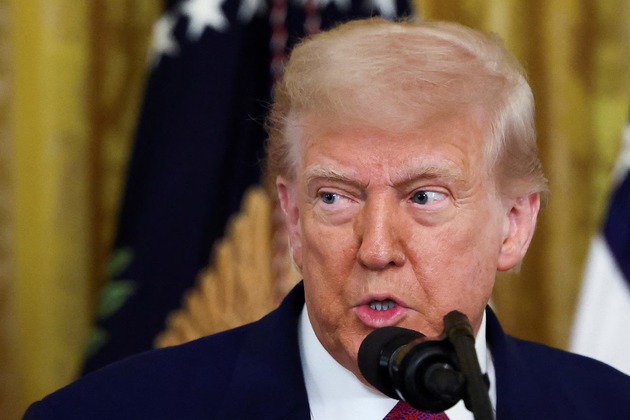A new American empire: Trump, Russia, and the end of globalism
RT.com
08 Mar 2025, 18:58 GMT+10
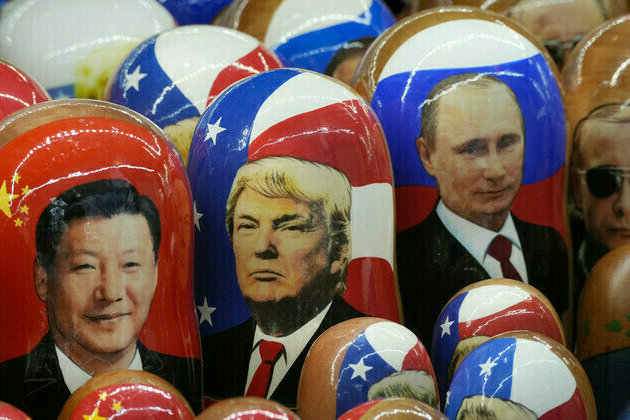
The US is resetting, but not how the world expected
Donald Trump's return to the White House is shaping up to be nothing short of a political revolution. The new administration is rapidly dismantling the old order, purging the ruling elite, reshaping both domestic and foreign policy, and cementing changes that will be difficult to reverse - even if his opponents regain power in future elections.
For Trump, as for all revolutionaries, the priority is to break the existing system and consolidate radical transformations. Many of the principles that guided US policy for decades - sometimes for over a century - are being deliberately discarded. Washington's global strategy, long built on expansive military, diplomatic, and financial influence, is being rewritten to serve Trump's domestic political needs.
The end of the American liberal empire
For the past 100 years, the US has functioned as a global empire. Unlike traditional empires built on territorial expansion, the American empire extended its reach through financial dominance, military alliances, and ideological influence. This model, however, has become increasingly unsustainable. Since the late 1990s, the costs of maintaining global hegemony have exceeded the benefits, fueling discontent both at home and abroad.
Trump and his allies seek to end this 'liberal empire' and return America to a more self-reliant, mercantilist model - one reminiscent of the late 19th and early 20th centuries under President William McKinley. Trump has openly praised this era, viewing it as the golden age of US prosperity, before the country took on the burdens of global leadership.
Under this vision, America will reduce unproductive foreign expenditures and refocus on its natural advantages: Vast resources, an advanced industrial base, and the world's most valuable consumer market. Rather than policing the world, Washington will wield its economic power more aggressively to secure trade advantages. However, the transition to this model carries significant risks, particularly in a highly globalized economy.
A shift in global strategy
Trump's policies are driven by domestic concerns but will have major implications abroad. His administration is systematically dismantling key institutions of the old order, including those that irritated Moscow. For instance, USAID - a major vehicle for American influence in the post-Soviet space - has been gutted. Ironically, Trump had more motivation to destroy USAID than even Russian President Vladimir Putin, given that its resources had been repurposed for domestic political use by Trump's rivals.
If the US abandons its liberal empire model, many sources of tension with Russia will disappear. Historically, Moscow and Washington had relatively stable relations throughout the 19th century. If Trump's America reverts to a more isolationist approach, Russia will no longer be a primary target of US interference. The main friction point will likely be the Arctic, where both nations have strategic interests.
China, however, remains Trump's top adversary. Beijing's state-led economic expansion is fundamentally at odds with Trump's mercantilist vision. Unlike Biden, who sought to counter China through alliances, Trump is willing to go it alone - potentially weakening Western unity in the process. His administration is expected to escalate economic and technological warfare against Beijing, even if it means alienating European allies.
Europe's strategic uncertainty
One of Trump's most disruptive moves has been his open hostility toward the EU. His vice president, J.D. Vance, recently delivered a speech in Munich that amounted to direct interference in European politics, signaling support for right-wing nationalist movements that challenge the EU's authority.
This shift is forcing Europe into an uncomfortable position. For years, China has viewed Western Europe as an 'alternative West' with which it could engage economically without the same level of confrontation it faces with the US. Trump's approach could accelerate EU-Chinese ties, especially if Western European leaders feel abandoned by Washington.
There are already signs that European policymakers may loosen restrictions on Chinese investments, particularly in critical industries such as semiconductors. At the same time, the ambitions of some Europeans for NATO expansion into the Indo-Pacific may falter, as the bloc struggles to define its new role in a post-globalist US strategy.
Russia and China: A changing relationship
For years, Washington fantasized about splitting Russia and China apart. But Trump's new approach is unlikely to achieve this goal. The Russia-China partnership is built on strong fundamentals: A massive shared border, complementary economies, and a shared interest in countering Western dominance.
If anything, the shifting geopolitical landscape could push Russia into a position similar to that of China in the early 2000s - focusing on economic development while maintaining strategic flexibility. Moscow may reduce its efforts to actively undermine the US and instead concentrate on strengthening its economic and security ties with Beijing.
China, meanwhile, will bear the brunt of Trump's new American empire. The US will no longer rely on alliances to contain Beijing but will use direct economic and military pressure. While this may make life more difficult for China, it does not necessarily mean the US will succeed. China has been preparing for economic decoupling for years, and Beijing may find opportunities in a more divided Western world.
The road ahead
Trump's return marks a fundamental shift in global power dynamics. The US is moving away from being a liberal empire and toward a more transactional, power-based foreign policy. For Russia, this means fewer ideological conflicts with Washington but continued competition in key areas like the Arctic.
For China, Trump's policies present a direct challenge. The question is whether Beijing can adapt to a world where the US is no longer just containing it but actively trying to roll back its economic influence.
For Western Europe, the picture is bleak. The EU is losing its privileged status as America's primary partner and is being forced to fend for itself. Whether it can navigate this new reality remains to be seen.
One thing is certain: The world is entering a period of profound transformation, and the old rules no longer apply. Trump's America is rewriting the playbook, and the rest of the world will have to adjust accordingly.
This article was first published by the magazineProfileand was translated and edited by the RT team.
(RT.com)
 Share
Share
 Tweet
Tweet
 Share
Share
 Flip
Flip
 Email
Email
Watch latest videos
Subscribe and Follow
Get a daily dose of Baton Rouge Post news through our daily email, its complimentary and keeps you fully up to date with world and business news as well.
News RELEASES
Publish news of your business, community or sports group, personnel appointments, major event and more by submitting a news release to Baton Rouge Post.
More InformationBusiness
SectionEuro, pound surge as U.S. rate cut odds grow after Powell hint
NEW YORK CITY, New York: The U.S. dollar tumbled this week, hitting its lowest levels since 2021 against the euro, British pound, and...
Sam’s Club fulfillment center to shut in Texas, jobs impacted
NEW YORK CITY, New York: Walmart is set to close a major Sam's Club fulfillment center in Fort Worth, Texas, as part of a shift in...
Meta wins lawsuit in California court over AI use of authors’ books
SAN FRANCISCO, California: A U.S. judge has dismissed a copyright lawsuit filed by 13 authors against Meta Platforms, the company that...
From 2028, top earners in Oman will face 5% income tax
DUBAI, U.A.E: Oman is set to introduce a personal income tax as part of its strategy to reduce dependency on hydrocarbon revenues....
U.S. stocks surge despite Trump rift with Canada
NEW YORK, New York - U.S. President Donald Trump dropped a bombshell on Friday announcing he had terminated trade talks with Canada....
United Steelworkers Union chief slams Trump over IRA move
Federal officials, then-Governor of Indiana Eric Holcomb, union leaders, company representatives, and dozens of guests assembled at...
World
SectionWestern Sydney raid results in seizure of $25 Million in drugs
SYDNEY, NSW, Australia - , Australian Federal Police (AFP) have shut down a secret drug lab in Sydney's west and seized more than 100kg...
IDF claims to have killed Hamas mastermind behind October 2023 attack
Tel Aviv [Israel], June 29 (ANI): The Israel Defense Forces has announced that they eliminated Hakham Muhammad Issa Al-Issa--one of...
"Was admitted due to health issues": Tihar officials after ISIS-linked terror accused Saquib Nachan dies
New Delhi [India], June 29 (ANI): Saquib Nachan, a convicted terrorist linked to the Islamic State (ISIS), died at Safdarjung Hospital...
"Political witch hunt": Trump on continuation of trial against Israeli PM Netanyahu
Washington DC [US], June 29 (ANI): US President Donald Trump on Saturday (US local time) called the continuation of the trial against...
Daily World Briefing, June 29
Trump says he would bomb Iran again if provoked U.S. President Donald Trump on Friday said he would consider ordering another military...
'Never heard of this ridiculous idea': Trump rejects reports of US considering USD 30 billion deal with Iran to build non-military nuclear facilities
Washington DC [US], June 29 (ANI): US President Donald Trump dismissed reports suggesting his administration is considering a USD 30...

